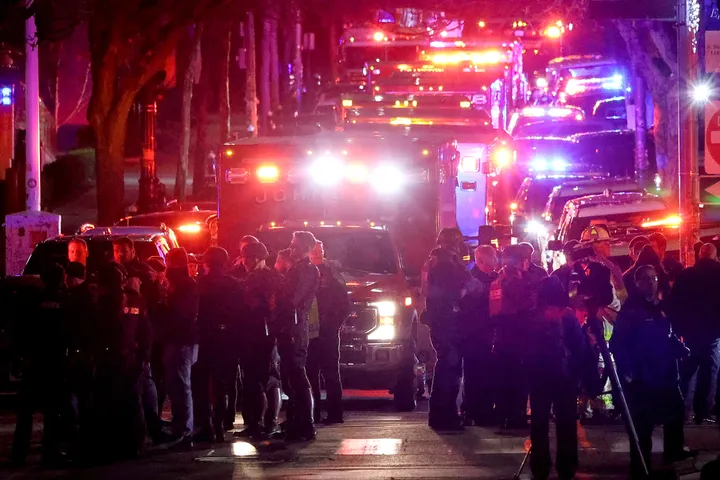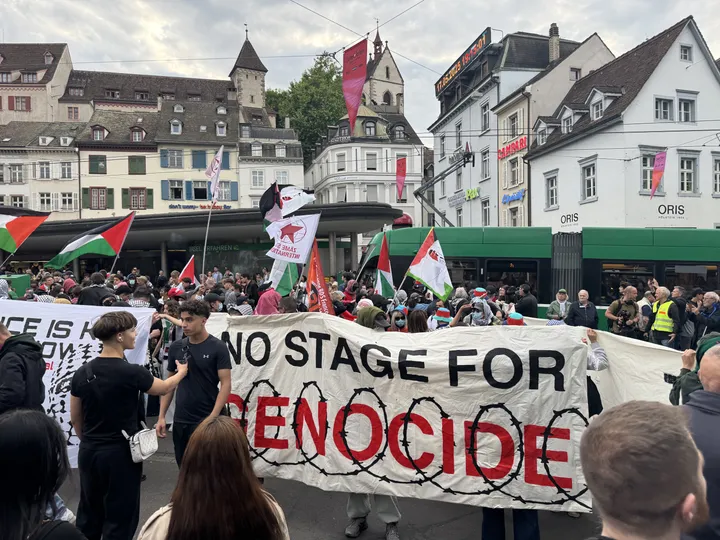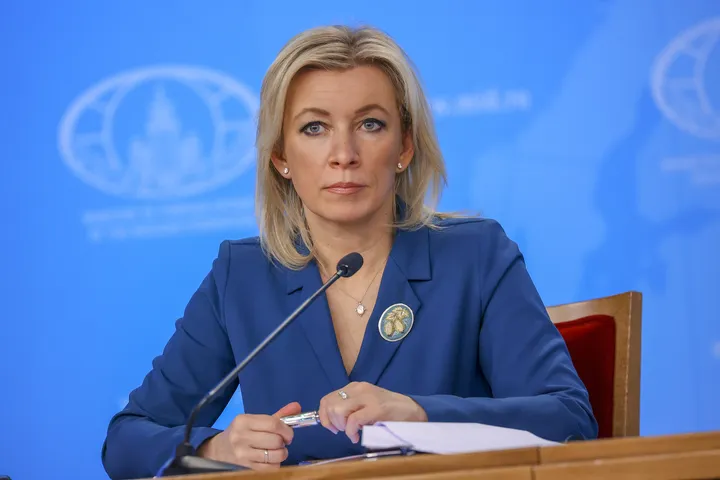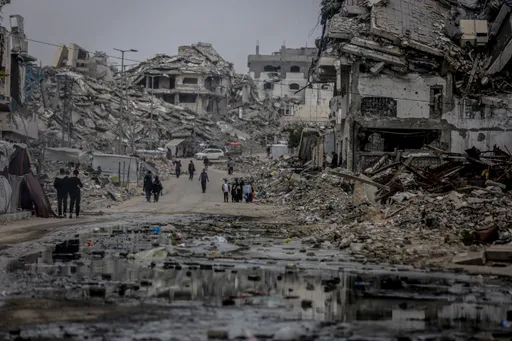UN Secretary-General Antonio Guterres on Sunday called for an investigation of air strikes believed to have been carried out by Russian jets in Syria, killing dozens including children.
The air attack on the night of June 7 to 8 targeted the village of Zardana in Idlib province and left 44 dead including six children, according to the British-based Syrian Observatory for Human Rights.
In a statement, Guterres expressed "deep concern" about the strikes and called for a "full investigation into the attacks, especially allegations that there was also a second strike targeting first responders, to establish accountability."
He recalled that Idlib is part of the de-escalation agreement for Syria reached between Turkey, Russia and Iran and urged those guarantors to uphold their commitment.
Most of Idlib province is held by an array of militant groups with only parts controlled by the Russian-backed regime.
UN fears for 2.5 million in Idlib as fighting escalates
The United Nations voiced concern on Monday about an escalation in fighting and air strikes in Syria's Idlib province, where 2.5 million civilians have "no place else to go" within their homeland.
Panos Moumtzis, UN regional humanitarian coordinator for Syria, called on major powers to broker a negotiated settlement to end the war and avoid a bloodbath in Idlib."
"We worry about 2.5 million people becoming displaced towards Turkey ... There is no other location to move them to (in Syria)," he told a news briefing in Geneva.
An aid convoy reached the town of Douma in the enclave of eastern Ghouta outside Damascus on Sunday, but the Syrian regime did not allow UN staff to accompany it, Moumtzis said.
Fresh strikes
Regime forces killed at least 15 civilians in air strikes carried out in northwestern Syria on Sunday in apparent retaliation for a militant attack on two besieged regime-held villages, the Britain-based war monitor said.
The bombing raids hit a string of towns and villages in the northwestern province of Idlib.
In the town of Taftanaz the strikes killed 10 civilians, including four children, the SOHR said.
Observatory head Rami Abdel Rahman said strikes had also hit near a children's hospital, putting it out of service.
Five other civilians were killed in raids that hit other towns.
The air strikes came a day after militants from Al Qaeda's former Syrian affiliate launched an attack on Fuaa and Kafraya, two villages held by the regime but cut off by hardline forces.
Late Saturday, Hayat Tahrir al Sham (HTS) and allied militants shelled Fuaa and Kafraya heavily and clashed with local fighters.
"This is the fiercest attack in around three years," Abdel Rahman said, adding that Sunday's deadly air strikes were in response to the militant attack.
Six Syrian pro-regime fighters and at least three from HTS were killed in the fighting, which continued on Sunday.
Syrian regime news agency SANA also reported Saturday's attack, and said local fighters were able to push back the militants.
Fuaa and Kafraya are the only two places in Syria currently designated as besieged by the United Nations after the regime recaptured the Yarmuk Palestinian camp in southern Damascus.
The villages are home to an estimated 8,100 people, most of them Shia Muslims.
They came under siege in 2015, when rebels and opposition forces ousted regime forces from a vast majority of Idlib province.
Since then, the mainstream opposition's influence has dwindled as militants solidified their grip on the province, and regime forces have recaptured an eastern sliver of Idlib.
HTS and its allies control around 60 percent of the province, its local rivals hold about a third, and the regime controls about 10 percent, according to the Observatory.
Now, even the Daesh terrorist group is conducting hit-and-run attacks in Idlib against its HTS rival.
Last week, clashes between HTS and a Daesh sleeper cell made up of Iraqi militants left more than two dozen fighters dead, mostly from Daesh.
In retaliation, the Daesh cell executed five HTS militants it had abducted in Idlib, the Observatory said. HTS also killed six Daesh members it had captured in the clashes.
Siege tactics have been used throughout Syria's seven-year conflict, mostly by the regime.
Troops have employed the tactic alongside heavy bombing to cut off food and medicine to rebel-held areas, then coerce people to agree to leave in population transfers.
Idlib, which lies on the border with Turkey, has seen its population balloon to around two million people in recent years as fighters and civilians evacuated from other opposition areas are dumped there.
It was designated last year as a de-escalation zone, but violence has been creeping up again.
Since Russia intervened in its support in 2015, the Syrian regime has regained control of around half of the country.
More than 350,000 people have been killed in the Syrian war since it started in 2011 with the brutal repression of anti-regime protests.
























